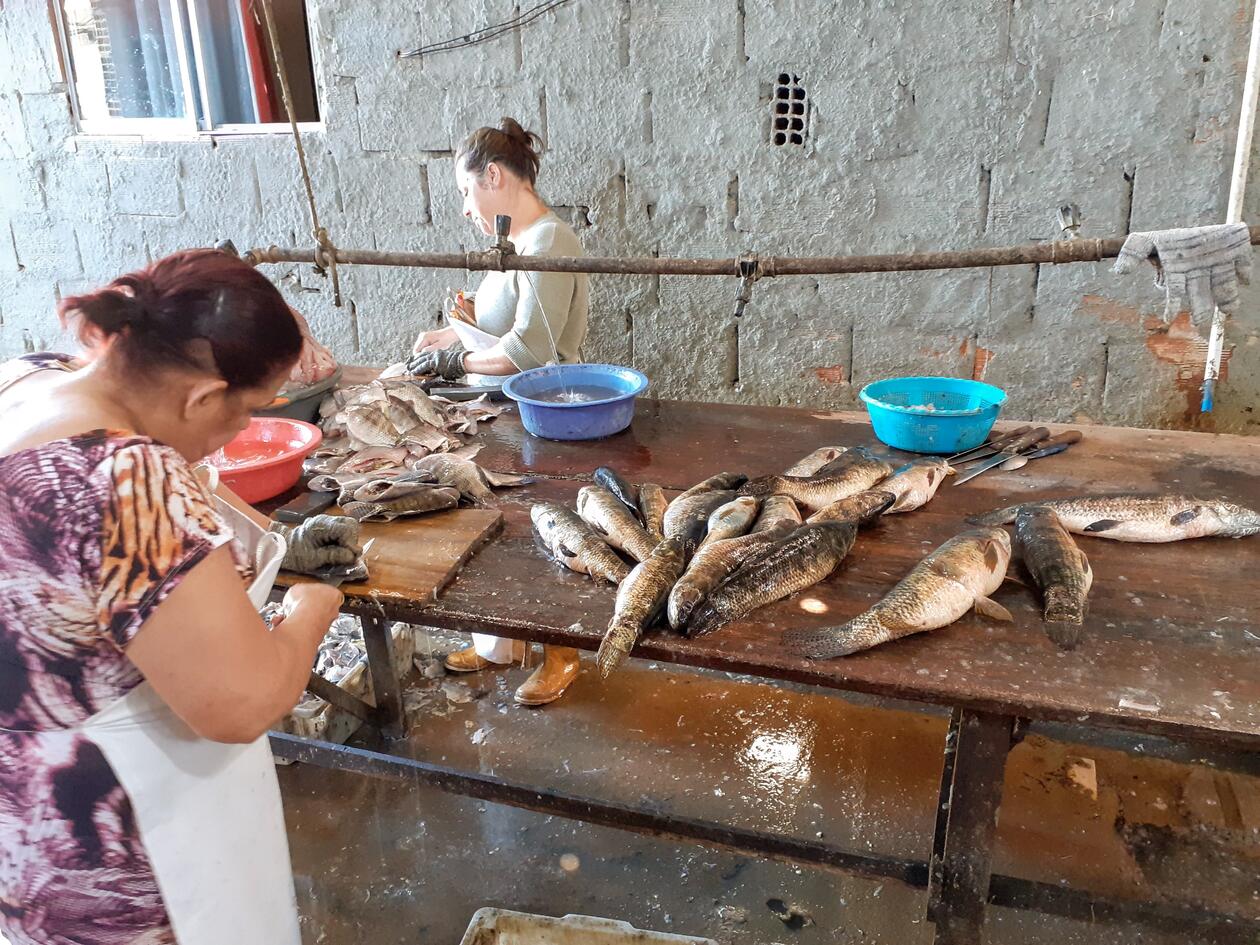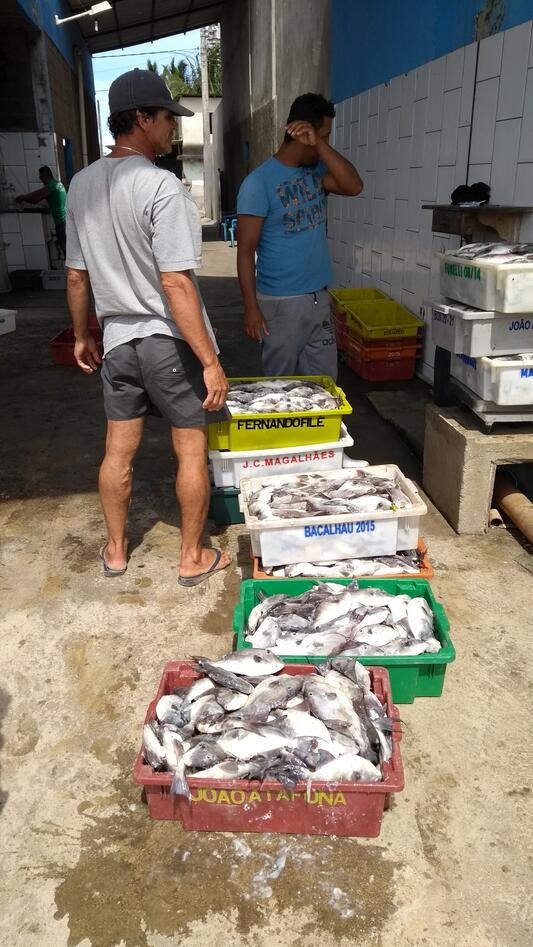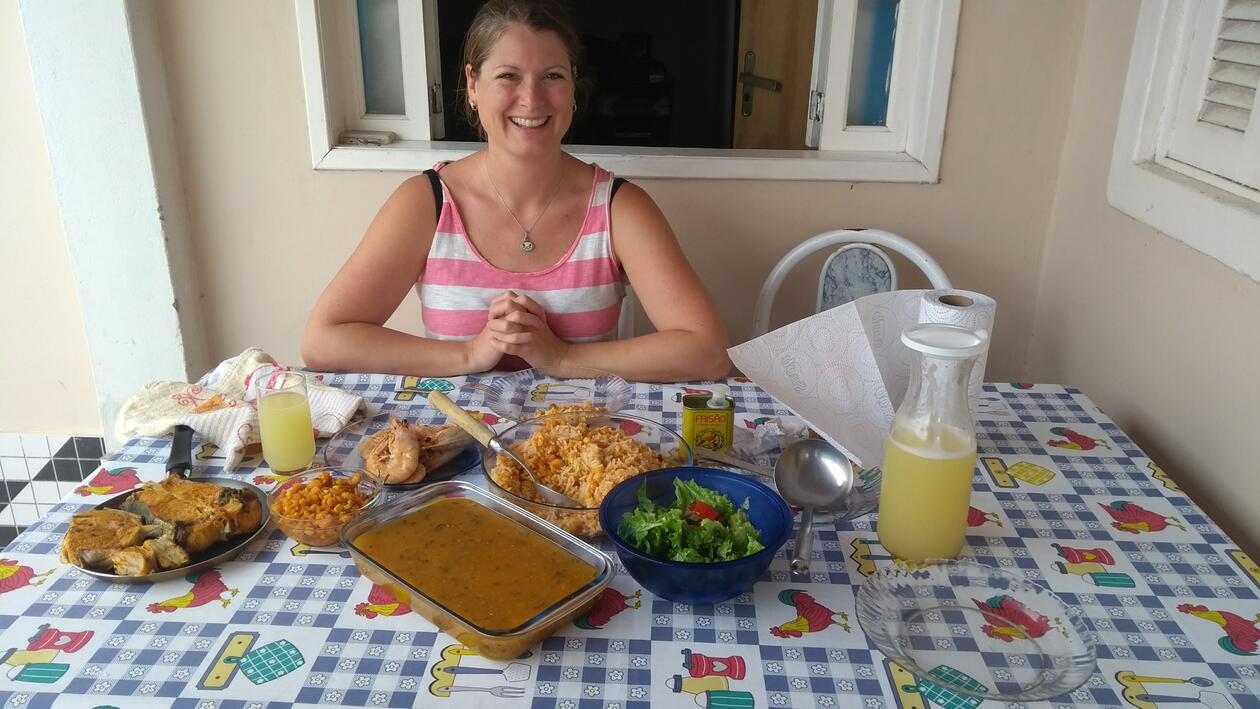Norwegian-Brazilian partnerships in teaching and research development
How can we better understand the gendered dimensions of marine economies and environmental sustainability? I invited Associate Professor and project leader Iselin Åsedotter Strønen for a coffee and a conversation to elucidate the core focus of her new teaching- and research development project, ENMARINE.

Main content
ENMARINE is short for Environmental Sustainability, Marine Economies and Gendered Socio-Economic Inequalities: A Norway-Brazil Partnership in Research and Teaching. The core partners are UiB in Norway and Universidad Federal de Rio Grande (FURG) in Brazil. However, the project’s aim and strategy is to incorporate other international scholars who are interested in sharing, discussing and generating knowledge about the intersections of environmental sustainability, marine economies, and gendered socio-economic inequalities.
Women in marine economies
So, why does the project aim to develop an explicitly gendered analytical framework? I ask. ‘Well, there is a need for more research on women’s role in marine economies, including the question of marine sustainability’, Strønen explains. Part of the reason for this is that fishery is often thought of a masculine activity, because most often – though far from always – it is men who venture out on open sea to fish. However, in practice, women are deeply involved in fishery activities, through active fishing for example in rivers, mangroves and from the beach, and in secondary and tertiary niches such as processing and sales.
Strønen argues that the problem is that women’s work in marine economies, as is often the case when it comes to women’s labour, is made invisible. Women may not be considered as workers, but rather as a 'helping hands' for men, or as 'housewives' who also happen to do some activities related to fishery. This means that they are excluded from benefits, representation, and recognition – and they are gravely underpaid and often exploited. ‘This is also the case along the Brazilian coastline’, she says. While it is men who go out and fish, women also play important parts in the industry. They harvest crabs in the mangroves and do the filleting and processing of the catch. Additionally, they play an important role in vending the fish products.
Women are also entangled in other intimate, social, economic, environmental, and political processes and dynamics related to the fishery economy and other economic domains, many of them detrimental to their livelihoods, health and living conditions. ‘Thus, I believe that it is extremely important to have a concerted gendered approach, in order to generate and render visible empirical knowledge, but also to develop better theoretical and analytical tools that are capable of capturing and analysing these dynamics’, Strønen says.
Long-term thinking
The project is built up around bilateral student mobility and guest researcher exchange between FURG ─ the Federal University of Rio Grande ─ in Brazil and UiB in Norway. This provides the researchers with the opportunity to meet regularly and over longer periods of time. ‘Not only through brief workshops and conferences’, Strønen adds. This way, they will get to know each other’s respective institutions and countries better and can facilitate network building with and amongst students and PhDs. ‘I like the long-term perspective in this. Hopefully, we get to do some solid “slow thinking” together, which is often difficult in academia these days’, Strønen says.
The research focus of the project has immediate interest and relevance also for actors outside of academia, including business, NGOs, and policy makers. Strønen argues that it is important that knowledge consolidated and generated through the project is shared and discussed with outside academia’s walls. As Norway is an important economic player in Brazil this also calls for collaboration in research. Moreover, Brazil is important and interesting in itself, because of its central position on the global arena. ‘From an anthropological perspective, Brazil is a hugely interesting case, because of its history, regional and demographic heterogeneity, political dynamics, and cultural diversity, to mention some aspects’, Strønen asserts.
What do you look the most forward to with the project? I ask. ‘To introduce students from UiB to Brazil, and to FURG in particular’, she says and continues: ‘FURG is located in the federal State of Rio Grande do Sul, which is the southernmost Brazilian state, bordering to Uruguay. It has the longest beach in the world, Praia do Casino, an extremely interesting history, and beautiful nature. It is not “the tropical Brazil” that you associate with pictures from Rio and the northern states, but I think that makes it even more interesting. I also know that our exchange students will be extremely well received at FURG, and that they will learn things and meet people that I think will make a huge impact on them’.
Project background
The project was not conceived out of the blue. Rather, it grew out of a series of fieldworks in Brazil that Strønen conducted through the research project Energethics – Norwegian energy companies abroad. Expanding the anthropological understanding of corporate social responsibility (2015-2019). The project, which was financed by the Norwegian Research Council, was led by Professor Ståle Knudsen at the Department of Social Anthropology, UiB and Siri Lange at the Chr. Michelsen Institute (CMI).
‘My contribution to the project was a case study in Brazil on an environmental education project developed by Equinor as a condition for their operating license in the Peregrino-field north of Rio de Janeiro’, Strønen explains. Equinor’s project was aimed at women living in coastal communities defined as the impact area for the Peregrino-field, and who were making a living from participating in the local artisan fishery economy, either by harvesting, processing, or selling catch.
Strønen explains that she spent quite some time in coastal communities where artisan fishery was the economic cornerstone. ‘Above all, I spent a lot of time with women to learn about their lives, their labour situation, how they were impacted by different economic activities in the region, and what they were thinking. I became deeply fascinated by the region, and by the broader research questions that its generated. At the same time, I got to know Brazilian researchers who were interested in the same issues, and one thing led to another, and we ended up developing the ENMARINE project together’, she says.
International research in a pandemic
The ENMARINE project was originally planned to start up in august 2020, and the first group of Norwegian students and Strønen herself were scheduled to go to Brazil in February 2021. Due to the covid-19 pandemic, this was not possible, and the project had to be postponed to December 2020. The pandemic has also affected the project’s Brazilian partners’ work situation and student body gravely.
‘FURG, our partner institution, has been permanently closed for physical teaching since last spring, and many economically disadvantaged students have struggled because of a lack of facilitates to study from home, or because they have had to work,’ Strønen laments. She explains that FURG is in a state of more or less permanent crisis for the time being. Moreover, Brazil is the second most affected country in the world, in terms of deaths. The country is also in the midst of a very turbulent political conjuncture. ‘I do not know what Brazil will look like when they get the corona situation under control, or when they will get it under control, and if that has any consequences for the project. We just need to try to plan ahead and keep in touch as best we can, keep the project going as best we can, and other than that just wait and see ─ like the rest of the world,’ Strønen finishes with a sigh.





